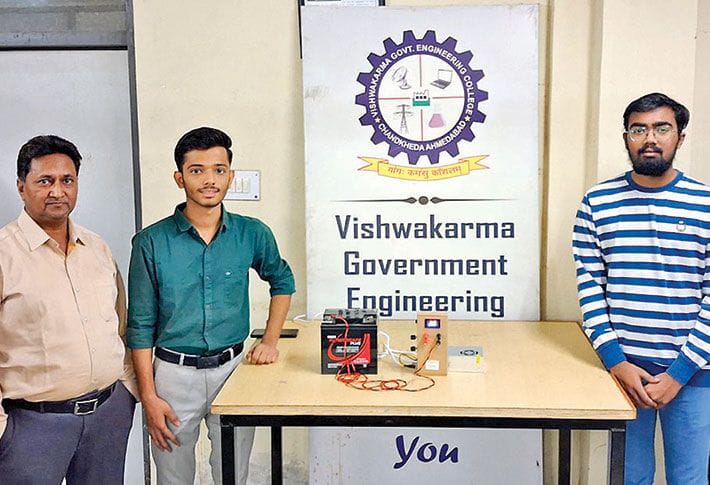Two engineering students of Vishwakarma Government Engineering College (VGEC) have developed a solution for the common problem of charging multiple electric vehicles (EVs) with varying charger requirements. Their universal DC charger promises efficient charging and significant power conservation.
The project, named “Revolutionizing EV Charging: The Universal DC Charger for All Electric Vehicles,” was presented by students Prashant Tiwari and Smit Parmar.
Parmar explained that the idea stemmed from his own frustration with managing multiple chargers for two EVs at home.
“I found myself wasting time, energy, and resources,” he said. “It was inconvenient and felt like a waste of electronics. The cost of managing multiple chargers kept adding up. I thought of designing and making a single device that can charge any EV, saving both money and resources.”
Parmar then developed the Universal DC Charger – a cost-effective solution aimed at reducing electronic waste, saving power, and making EV charging more accessible and sustainable.
Smart charging
Tiwari highlighted the charger’s key features, explaining that it automatically detects both voltage and current, ensuring optimal charging for every EV.
“Once the battery is fully charged, it automatically cuts off to prevent overcharging and protect the battery’s longevity,” he said. The charger also prevents overheating for safe and reliable use. “We’ve integrated a buck converter for efficient power conversion and included both a volt and ampere meter to allow users to monitor the exact amount of current flowing, ensuring precise and safe charging,” Tiwari added.
He pointed out the charger’s versatility, noting its ability to charge multiple EVs simultaneously, making it ideal for households with several EVs, commercial charging stations, and fleet operators. The charger can also charge individual EV batteries, making it suitable for workshops, research labs, and customised EV solutions.
Academic support
I N Trivedi, head of the department, expressed his support for the students’ initiative. “Students of the Power Electronics Department are encouraged to stay informed about emerging technologies and to work on projects,” he said. “This ensures balanced development in both academic and technological fields, paving the way for a bright future for the students.”



